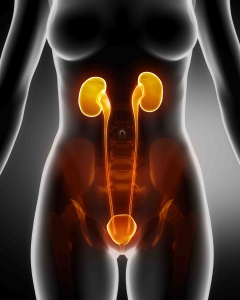Learn about the causes of Cystitis & find a practitioner in Auckland, Hamilton, Bay of Plenty, Wellington, Christchurch, Dunedin to help you overcome Cystitis within New Zealand.
Cystitis is an inflammation of the lining of the bladder, commonly caused by infection. The condition primarily affects adult women, and the main symptoms are a burning pain when passing urine and urgent and frequent need to pass urine, often without being able to.
Causes of cystitis
The common cause of cystitis is from a bacterial infection of the
bladder. Infections can be caused by a number of reasons including:
• Bacteria entering the urethra via a tampon or during sex
• Not emptying the bladder properly when using the toilet (causing bacteria to be left in the bladder to multiply
•
Toilet hygiene - Germs wiped from the anus toward the urethra when
going to toilet (women are encouraged to wipe front to back rather than
back to front to prevent this)
• Blockage in the urinary system
• Damage caused by catheter changes
• Enlarged prostate gland in men
• Diabetes
• Kidney problems
•
Thinning of the urethra lining during menopause (caused by a fall in
oestrogen levels). The lining becomes prone to infection.
• Damage or bruising caused by vigorous/frequent sexual intercourse (referred to as honeymoon cystitis).
• Using a diaphragm for contraception
• Sexually Transmitted Infections (STIs)
Symptoms of cystitis
The common symptoms of cystitis include:
• Burning or stinging sensation when passing urine
• Frequent need to urinate, often urgently and usually only passing small quantities
• Dark, cloudy and smelly urine (which may contain blood)
• Pain in the pelvis, abdomen or lower back
Older women suffering cystitis may not display any of these symptoms but could feel unwell, tired and have a high fever.
Children
under five years old with cystitis may not display common symptoms of
the condition but could suffer with weakness, loss of appetite,
nausea/vomiting, irritable moods and pain when urinating.
Should these symptoms occur it may indicate a condition other than cystitis such as:
• STIs (chlamydia, gonorrhoea etc.)
• E-coli infection
• Thrush
• Prostatitis (inflamed prostate)
• Urethritis (inflamed urethra)
• Reaction to perfumed personal hygiene products
• Urethral syndrome (women)
Diagnosis of cystitis
Your GP should diagnose the presence of a cystitis bacterial infection
based on your symptoms and a urine test. In many cases, a urine sample
can be tested at your local practice during your appointment but
further confirmation of which bacterium is causing the infection will
be carried out at a hospital laboratory.
In the first
instance, your GP may prescribe a general antibiotic for urinary
infections but this may need to be changed depending on the results
from the lab.
Your GP may also suggest testing for any STIs
which can cause similar symptoms to cystitis. If you suffer with
persistent bouts of cystitis (generally three times within 12 months)
you may be asked to go for an ultrasound, X-Ray or optical camera
internal examination of your bladder to rule out any other serious
underlying cause of your problem.
*Source: GoToSee.co.uk